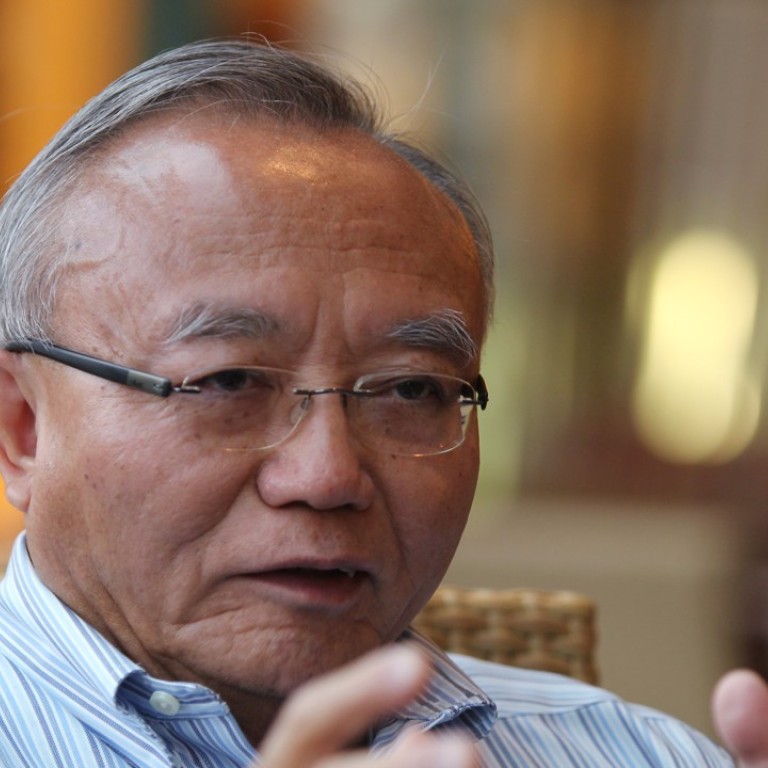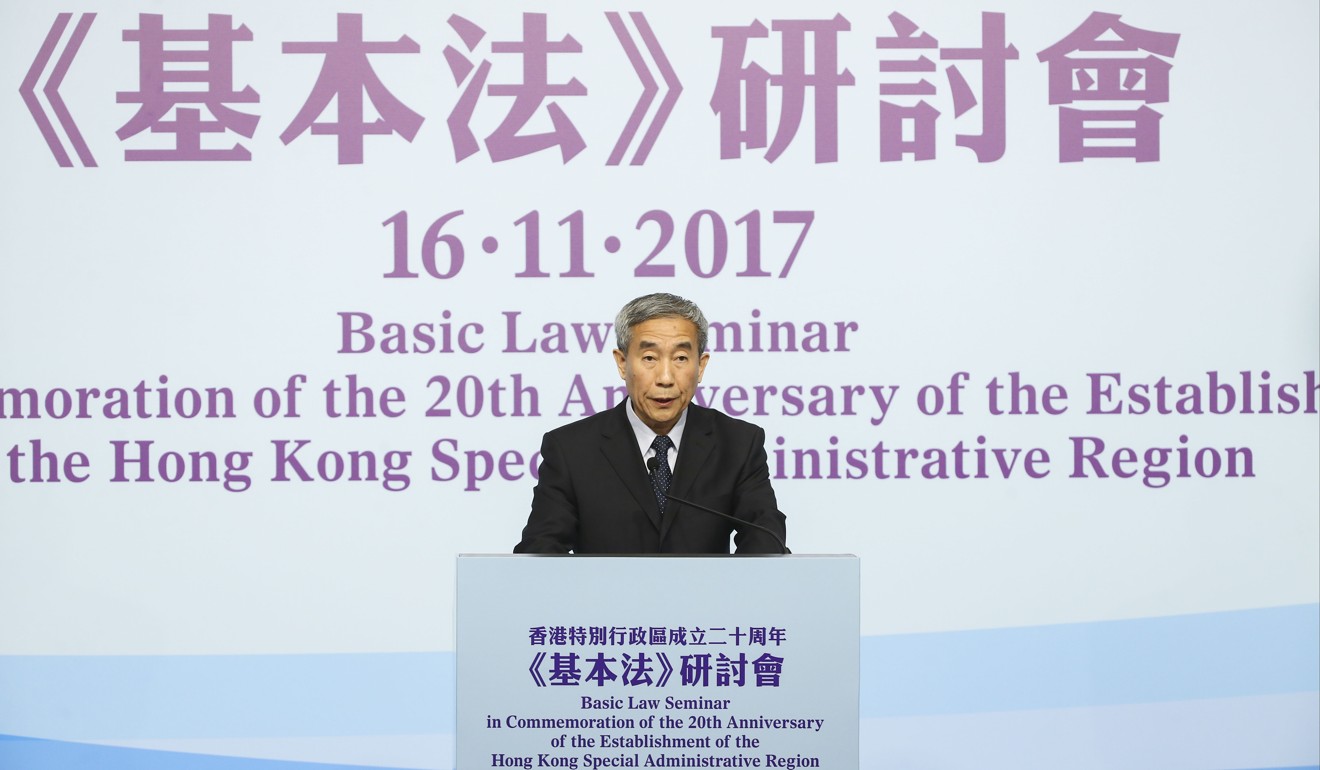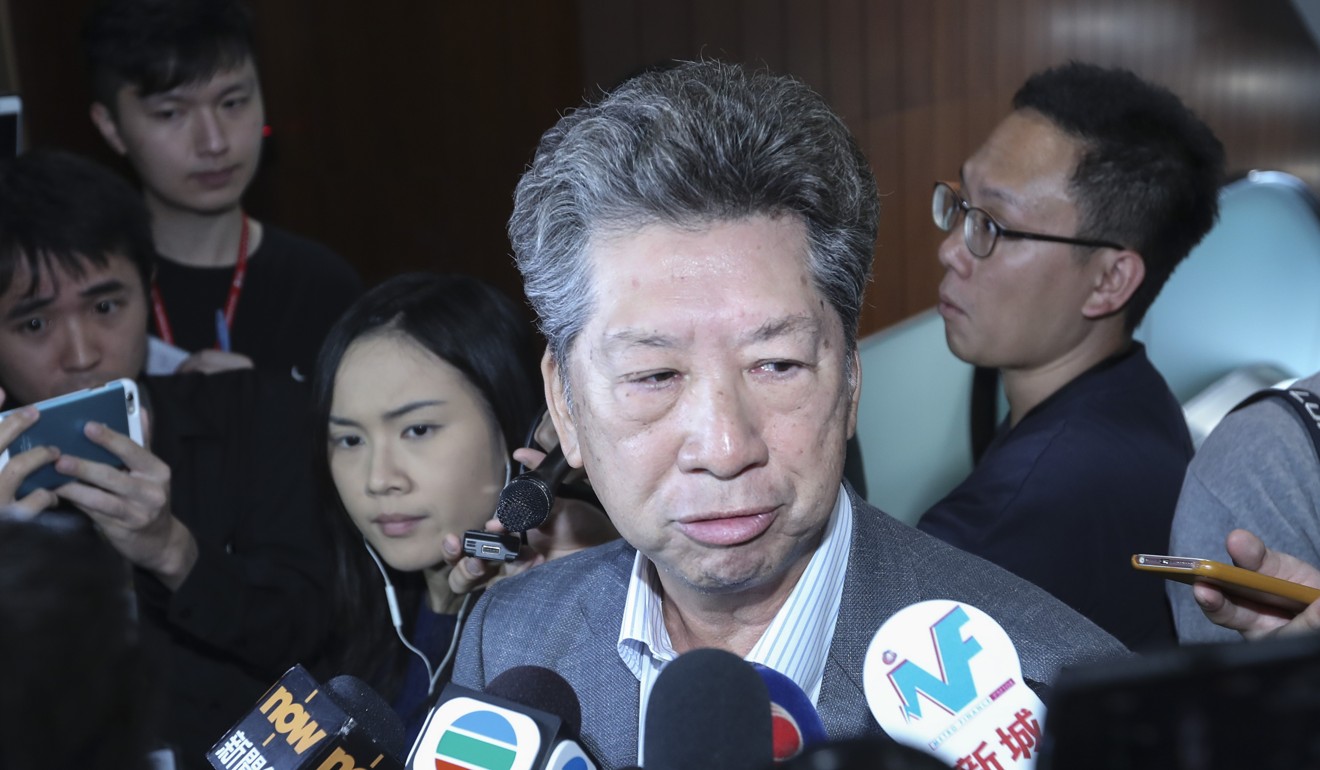
Beijing could take action if Hong Kong fails to enact national security law, mainland adviser warns
Chinese Association of Hong Kong and Macau Studies vice-chairman Lau Siu-kai’s comments come after Basic Law expert Li Fei says independence advocates are taking advantage of delay
An adviser to Beijing warned on Friday the central government could “take action” to safeguard national security if Hong Kong failed to enact relevant legislation, though an influential mainland legal expert acknowledged the difficulty in passing such a law and said there was no time frame.
Lau Siu-kai, vice-chairman of Beijing’s top think tank on Hong Kong affairs, was speaking a day after Li Fei, a senior mainland official who specialises in the city’s mini-constitution, said Hong Kong was paying the price for the delay, with independence advocates exploiting the lack of a national security law.
Asked on a Commercial Radio programme what would happen if Hong Kong ignored Li’s remarks, Lau replied: “The central government will not easily take action to eliminate any threat to national security originating from Hong Kong.
“But that does not mean that it will not take action at all.”
Lau’s warning was echoed by Ronny Tong Ka-wah, who is an executive councillor advising the city’s leader, Carrie Lam Cheng Yuet-ngor.

On an RTHK radio programme, Tong said Beijing could impose the mainland’s national security law on Hong Kong if it failed to establish its own.
“It is difficult to guarantee that Beijing will not impose its [national] security law on the city,” he said.
Article 18 of the city’s mini-constitution, the Basic Law, states that mainland laws relating to defence, foreign affairs and “other matters outside the limits” of the city’s autonomy can be applied in Hong Kong by way of local legislation or promulgation – taking effect immediately after insertion into the mini-constitution.
The Hong Kong government shelved a previous attempt to pass local national security legislation when in 2003, half a million people took to the streets in protest, fearing that the law would curb their liberties.
What Hong Kong needs, to feel like it belongs in the Chinese nation
On Friday, Secretary for Justice Rimsky Yuen Kwok-keung said that it was more appropriate for the city to enact its own law, and that the government would do so when there was “a suitable environment and sufficient time”.
“Article 23 should not be seen as something negative or be demonised,” Yuen said at a seminar on the Basic Law, referring to the article in the mini-constitution that states Hong Kong must enact its own national security legislation.
But Alan Hoo SC, a veteran barrister and chairman of the Basic Law Institute, an NGO, said the minister should lead a working group to engage the public on the topic, instead of “waiting for a suitable environment to emerge”.

Peking University law professor Rao Geping, a Basic Law Committee member, dismissed suggestions that Li was piling pressure on Lam’s administration to complete legislating Article 23 within her five-year term, which began in July.
He said there was no specific timing for the law to be enacted as “it wouldn’t be an easy task to get it passed in the Legislative Council”.
Rao added however that Hongkongers should accept Article 23 out of respect for the rule of law, as the Basic Law could not be applied “selectively”.
The move came a month after two newly-elected pro-independence lawmakers deviated from the standard oath and pledged allegiance to a “Hong Kong nation” during their Legco swearing-in ceremony.
Lau referred to the episode and said:“ It was a very good example that Beijing could take action only when Hong Kong lacked effective legal means to handle national security threats.”
Hong Kong secondary school pupils left scratching their heads after Li Fei’s Basic Law speech
Tong acknowledged concerns by Hongkongers over the national security law and suggested the government consider enacting local legislation in three parts.
We should learn a lesson from our failure in the past and ... deal with the easier tasks first, such as amending existing laws.
Article 23 says the city must enact laws to prohibit any act of “treason, secession, sedition, subversion ... or theft of state secrets”, prohibit foreign political organisations from conducting political activities in Hong Kong, and prohibit them from establishing ties with local bodies.
Tong said the first part of the article covered direct threats to national security, the second part was about state secrets and the third was on ties with foreign political forces.
The government could “deal with the first part first so that Beijing would be less worried about Hong Kong’s situation”, he said.
Hoo made suggestions on how public engagement on the topic could be conducted.
It could be a three-step process, he said, starting with a working group to engage scholars and relevant parties, then issuing a green paper to consult the public, before tabling a “white bill” that could still be amended, before the government’s term ends in 2022.
He said the next government would then be responsible for pushing a final, or“blue bill”, through the city’s legislature.
Additional reporting by Stuart Lau

